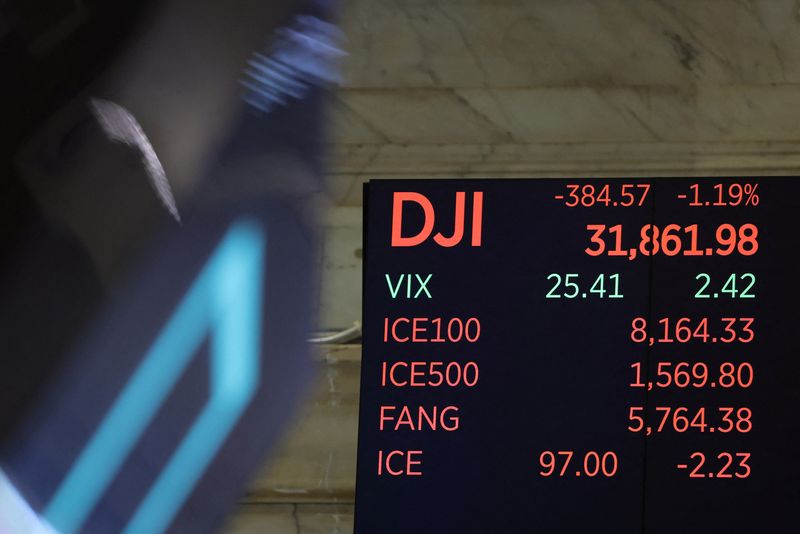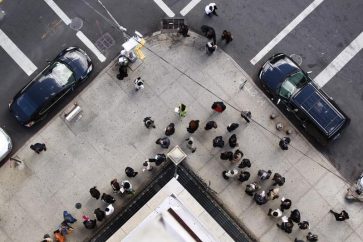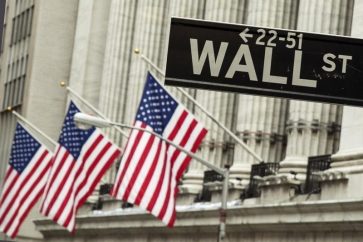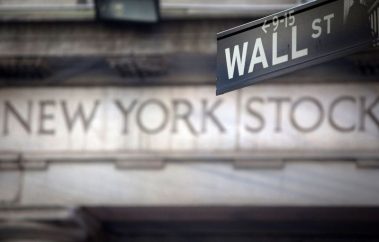The S&P 500 and the Dow Jones rose on Monday as investors considered the possibility of delaying in Fed rate hikes this week and a state-backed rescue of struggling lender Credit Suisse helped ease some concerns about a larger financial crisis.
Traders have increased their wagers that the Fed will likely suspend rate increases on Wednesday to maintain financial stability as problems in the banking industry brought on by the failure of Silicon Valley Bank and Signature Bank (NASDAQ:SBNY) threaten to get worse.
In a merger arranged by Swiss regulators over the weekend to prevent further market-shaking instability in the global banking industry, UBS and rival Credit Suisse have agreed to merge for $3.23 billion.
Credit Suisse’s U.S.-listed shares plunged 48.5% to a new record low, while UBS overcame premarket falls to increase 7.8%.
The stock prices of major American banks, including JPMorgan Chase & Co. (NYSE:JPM), Citigroup (NYSE:C), and Morgan Stanley (NYSE:MS) increased by 0.6% to 1.6%.
First Republic Bank (NYSE:FRC), a regional bank, fell 8.9% due to S&P Global’s (NYSE:SPGI) downgrading and a news of more fundraising, which increased concerns about the bank’s liquidity despite a $30 billion rescue last week. The bank’s shares were suspended because of the turbulence.
New York Community Bancorp (NYSE:NYCB) also increased by 33% after the bank’s unit decided to buy deposits and loans from Signature Bank. PacWest Bancorp increased by 21% after the bank reported that deposit outflows had steadied.
Art Hogan, chief market strategist at B Riley Wealth, claimed that there were more positive developments in the banking sector than negative ones.
“First and foremost, the Credit Suisse and UBS merger undoubtedly relieves a lot of stress from the global banking sector, and investors are at least feeling more confident about Signature Bank finding a bidder over the weekend.”
The S&P Banking index and the KBW Regional Banking index saw increases of 1.4% and 3.2% in early trade after posting their worst two-week declines since March 2020 on Friday.
Shares of Big Tech and growth companies like Microsoft (NASDAQ:MSFT), Amazon.com (NASDAQ:AMZN), and Tesla (NASDAQ:TSLA) declined between 0.8% and 1%, putting pressure on the Nasdaq as 10-year Treasury yields increased.
The probability of a Fed rate hike of 25 basis points on March 22 was almost evenly split between traders.
Investors also anticipate economic data this week, such as existing house sales, weekly unemployment claims, and durable goods, to assess the health of the American economy.
At 9:43 a.m. ET, the Nasdaq Composite was down 39.59 points, or 0.34%, at 11,590.93, the S&P 500 was up 11.27 points, or 0.29%, and the Dow Jones Industrial Average was up 221.37 points, or 0.69%, at 32,083.35.
Bed Bath & Beyond (NASDAQ:BBBY), among other stocks, fell 10.1% after requesting shareholder permission for a reverse stock split.
On the NYSE and the Nasdaq, the ratio of advancers to decliners was 2.81 to 1 for the former and 1.48 to 1 for the latter.
The Nasdaq recorded 11 new highs and 76 new lows, compared to the S&P index’s zero new 52-week highs and three new lows.




 By:
By:




